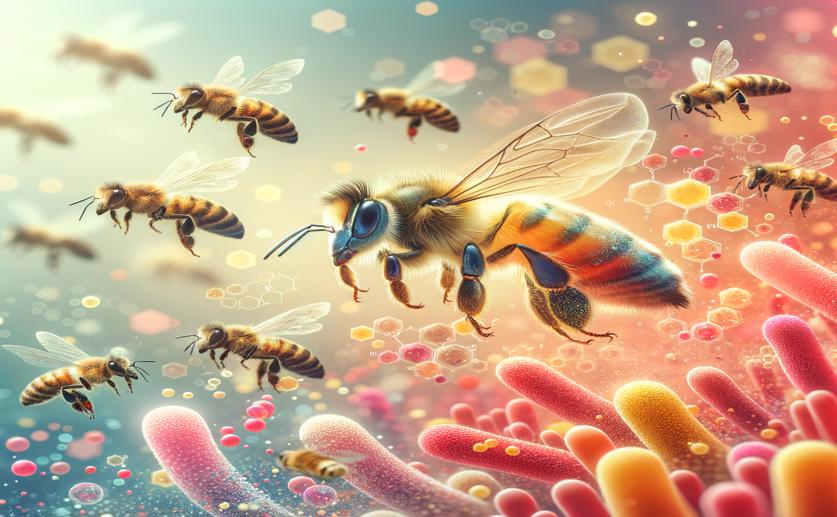
Honeybees as a Source of Natural Probiotic Yeasts
Jenn Hoskins
31st March, 2024

Image Source: Natural Science News, 2024
Key Findings
- Study from Polytechnic University of Marche identified yeast strains with probiotic potential from the honeybee ecosystem
- Out of 55 yeast strains tested, 27 showed resilience to simulated human gut conditions
- Seven strains, all from the Meyerozyma genus, exhibited promising probiotic characteristics, including the ability to adhere to human intestinal cells and inhibit harmful bacteria
EnvironmentAgricultureMycology
References
Main Study
1) Agro-ecosystem of honeybees as source for native probiotic yeasts
Published 28th March, 2024
https://doi.org/10.1007/s11274-024-03941-z
Related Studies
2) Potential Probiotic Yeasts Sourced from Natural Environmental and Spontaneous Processed Foods.
3) Probiotic potential of yeasts isolated from pineapple and their use in the elaboration of potentially functional fermented beverages.
4) Yeast communities related to honeybees: occurrence and distribution in flowers, gut mycobiota, and bee products.
5) Biocontrol ability and action mechanisms of Aureobasidium pullulans GE17 and Meyerozyma guilliermondii KL3 against Penicillium digitatum DSM2750 and Penicillium expansum DSM62841 causing postharvest diseases.



 22nd March, 2024 | Jenn Hoskins
22nd March, 2024 | Jenn Hoskins